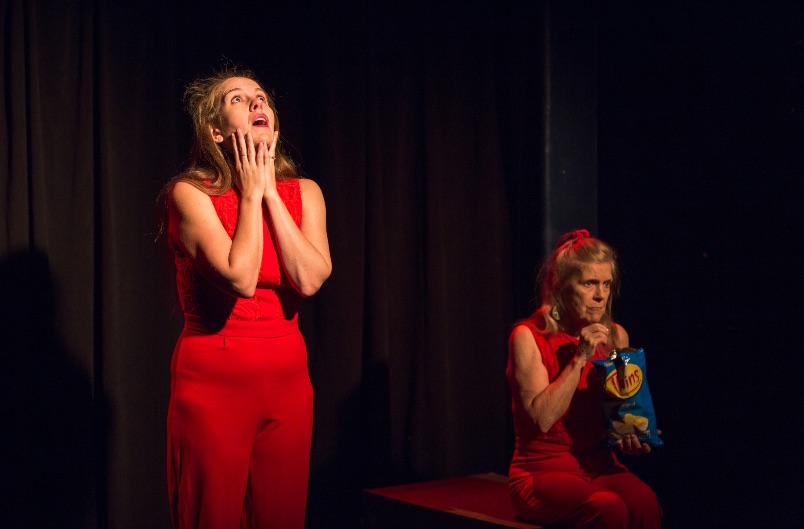Sonder is a masterclass in subtext. Written and directed by Mimi Monteith, the play takes its name from a term defined by the Dictionary of Obscure Sorrows. A platform dedicated to the invention of words to describe powerful emotional experiences, the noun ‘sonder’ is determined as the realization that everybody has a story. As a three-hander, the production lives up to its title, unfolding from within the home of Olivia (played by Annabelle Dodd) and James (Charlie Venables) – a happily married, but unhappy couple.
Designed by Rachel Burleigh, the set demonstrates a meticulous attention to detail. In spite of the closeness of the space, the world of the play seems to thrive. Sonder’s narrative spills across a lived-in sitting room: two armchairs blanketed in matching tartan, a raggedy carpet offset by a collection of paintings. While the stage is busy visually, it also feels swollen with tension. The latter acts as a perpetual source of drama, presenting itself in various guises: unresolved trauma, sorrows that go unspoken; painful truths that excite and anger in equal measure.
Upon discovering that she is pregnant, Margot (played by the electrifying Eleanor De Rohan) goes to Olivia and James for support. As best friends, the trio perform with searing conviction, navigating explosions of melancholy and humour deftly. The mention of the word ‘abortion’ sees a sudden concentration of light (by Emma Horne) – a theme that is carried across the hour to further illuminate instances of distress. In this, Monteith does well in her handling of wide-ranging and contentious topics. Here, the female body becomes much like a Monopoly board: limbs grow into a network of streets, the womb a community chest. Notions of masculinity (toxic or otherwise), and feminism are also added to what soon becomes a potent political potion – a mixture that can be hard to swallow at times.
Consequently, moments of incredulity stretch for a little too long, which can be confusing. Nonsensical or far-fetched episodes too – such as the presence of goat’s cheese within an otherwise grizzly tale of loss – are distracting. Greif however, remains constant, charging the action (and in particular, instances of silence) with unimaginable suffering. Ultimately, Sonder is a poignant display of female friendship and of relationships more generally - an act of frightening accuracy.

 Mimi Montheith's Sonder takes its audiences on an emotional rollercoaster at the Bread and Roses Theatre until the 22nd of February 2020.
Mimi Montheith's Sonder takes its audiences on an emotional rollercoaster at the Bread and Roses Theatre until the 22nd of February 2020.


 Aussie mother-daughter duo Hannah and Angela Norris bring their gorgeous two-hander After You to the Soho Theatre.
Aussie mother-daughter duo Hannah and Angela Norris bring their gorgeous two-hander After You to the Soho Theatre.